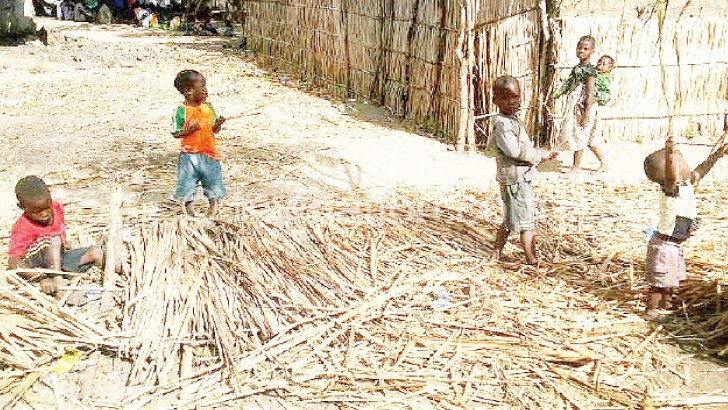Njalo Island — a place with no basics
Welcome to Njalo Island—a place where basic necessities do not exist.
These were welcoming remarks from Village Head Chalera as journalists and authorities from the district council disembarked from two boats that ferried them on a three-hour journey across Lake Chilwa to the island.
With a population of 362 people, Njalo is a fisherman’s village located 100 kilometers from Phalombe Boma on the mainland.

Chalera and his subjects say people of the island live in a world where basic necessities do not exist.
“Here at Njalo, we only hear that Malawians have access to basic education, good health, clean and safe drinking water and many other things provided for in the Constitution. The absence of essential social services is the true definition of life for people here,” says Chalera.
Currently, the island has a population of 101 children of school-going age. But access to basic education and early childhood development (ECD) services is a challenge because there is no school. The nearest school is on the mainland and one has to pay K500 to cross the lake by boat to access it.
When a child reaches school-going age, parents have to find relations living on the mainland where they can send the child to live and attain education. But this does not apply to everybody since others do not have such relatives.
While education challenges haunt people of the island, a random assessment revealed that lack of health services is the major worry for them. This is evident in the various diseases that rock the island from time to time.
It is a place whose population consists of at least 211 men and around 50 women, a situation that increases promiscuity because the whole male population has to share the few females that are available.
This, according to health counselors on the Island, contributes to the rapid spread of sexually transmitted Infections (STIs) .
Unfortunately, the only health facility at the island is an under-five clinic shelter, a situation which means adults have to travel to Nambazo Health Centre in Phalombe or Kachulu in Zomba District when they get sick.
The has always posed challenges to the people to the extent that some have lost their lives.
For instance, Melia Namalima, a businesswoman on the island, lost her 12-year-old son in 2007 because she could not find money in good time to ferry him across the lake.
“It was a painful experience and up until now, I still believe that if we had a health facility here, he could have been saved,” says Namalima.
Moreover, the under-five health clinic exists on the island just on paper. Often, there are no drugs to serve the children. The villagers explain that earlier this month, the clinic was closed for two weeks due to unavailability of drugs.
District Health Officer (DHO) for Phalombe Ketwin Kondowe said they assign health surveillance assistants (HSAs) serve on a rotation basis on the island.
Kondowe adds that the HSAs get required drugs from Nambazo. However, he says the rotation system still has shortfalls.
“Sometimes it happens that the HSA on duty at a particular period is negligent and the clinic stays without drugs for longer periods, even without operating. It also takes long for the District Health Office to know this is happening,” says Kondowe.
Clean and safe drinking water is another basic amenity that the inhabitants of Njalo Island lack despite being surrounded by water. Currently, the absence of potable water forces them to consume untreated water from the lake.
District Commissioner (DC) for Phalombe Harry Phiri described the situation at Njalo as dangerous and one that needs quick interventions.
Phiri says it is very unfortunate that the people of Njalo have not been regarded as Malawians for a long time although they participate in important national development activities such as paying taxes from their fishing proceeds and voting for political leaders.
“As government, we need to address some of the challenges that people here are facing, especially beginning with the provision of health services, education, clean and safe drinking water,” he says.
The Constitution of the Republic of Malawi provides for access to basic resources, education, health services, food, shelter, employment and infrastructure.”
However, as days go by, the people of Njalo Island continue to accept the fact that lacking is what defines their lives as they live isolated from development. n





